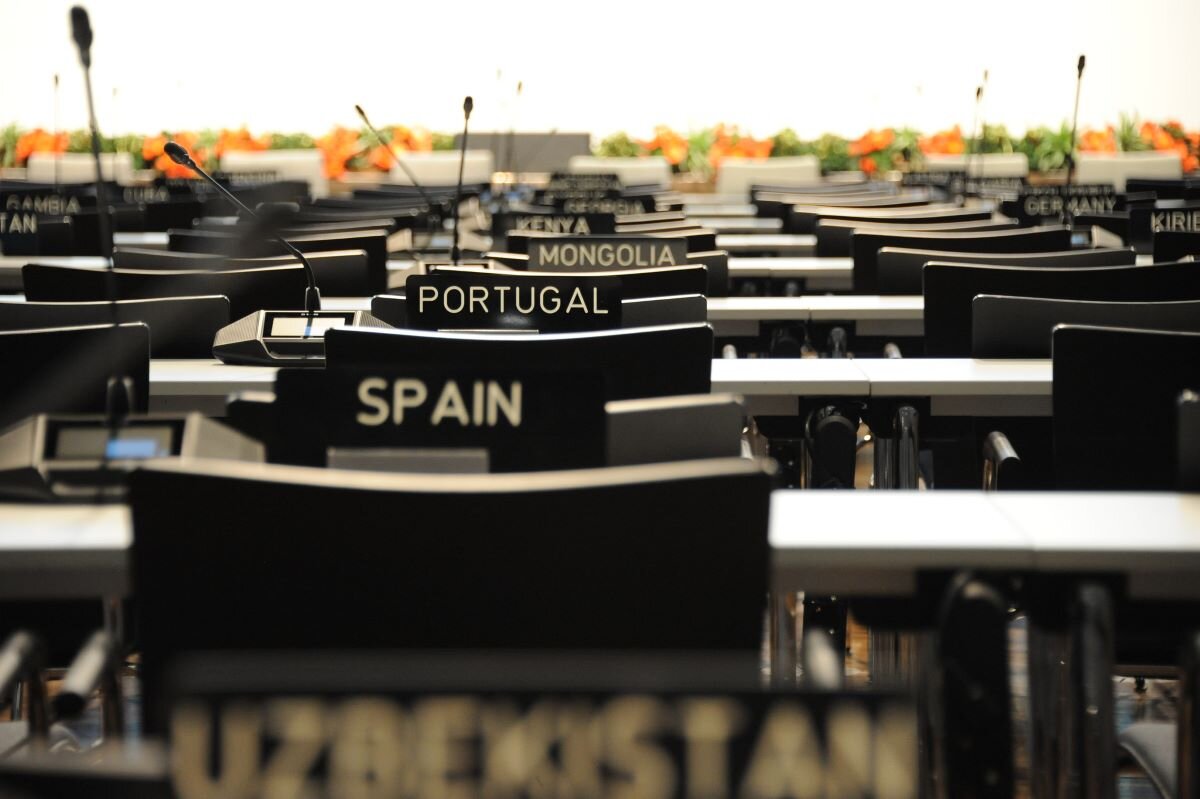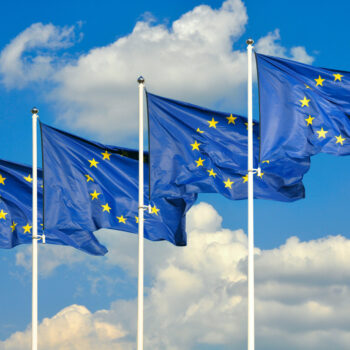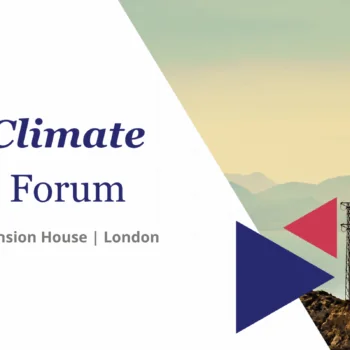With a month until COP27, E3G experts in geopolitics, finance and energy held a press briefing on why the Sharm El Sheikh summit matters and its position within the wider setting of geopolitical fragmentation, energy security and worsening climate impacts.
This on-the-record briefing focused on the state of play for climate diplomacy, progress since COP26, and expectations for COP27. It was followed by a Q&A session.
Watch the recording
Our experts
- Nick Mabey, co-CEO, provided an assessment of the state of play of climate diplomacy since COP26 and where it leaves expectations for COP27 in a challenging geopolitical and economic context.
- Kate Levick, Associate Director, looked at how public and private sector finance has fulfilled commitments made at COP26 – including GFANZ – and critical next steps for unlocking new finance at October’s IMF and World Bank Annual meetings.
- Maria Pastukhova, Senior Policy Advisor, evaluated progress on the energy transition since COP26, and the implications of the global energy crisis for the phase-out of fossil fuels and the rollout of renewable energy, including progress on Just Energy Transition Partnerships.
- Tom Evans, Policy Advisor, chaired the briefing and the Q&A, providing analysis on Loss and Damage.
Key takeaways
Nick Mabey opened the discussion with a look at the changing context since COP26. Glasgow saw momentum over the 1.5°C target, strong collective political leadership and real economy initiatives, and key issues like coal phase-out. However there was unfinished business on adaptation finance, concrete steps to realise promises, and an uneasy truce on Loss and Damage. Now in 2022, there are extra challenges spearheaded by Russia’s war in Ukraine.
Kate Levick spoke on finance’s crucial role in COP27. Critical negotiation issues that could make or break the success of international action on climate change come down to financial agreements. This COP also takes place in the context of a polycrisis: countries taking part in the negotiations all have a huge stake in how the global financial system, including the multilateral development banks, will be used to address current global challenges.
The market is moving fast – in 2021, wind and solar hit a record three-quarters of the 364 gigawatts of new capacity built. Market actors are rapidly adapting their business strategies, with GFANZ signatories and UK firms now required to publish their organisational transition plans for net zero emissions by 2050.
Maria Pastukhova spoke on energy. The ongoing energy crisis has made more evident that clean energy systems are key pathways for responding to crisis and boosting resilience – but there is a real risk of Global South countries not being taken on board without finance and political support in place. The current tailwinds are promising for the accelerated energy transition. But material support is crucial to prevent widening divides between those who can afford to move, and those who cannot even afford the fossil energy on which they currently rely.
Questions focused on the state of play and expectations for issues including:
- Progress on Loss and Damage: the panel were encouraged that there is now consensus on a need for an agenda item at COP27 – unlike at the SBs negotiations in June in Bonn – but noted the significant work remaining (particularly for the ministerial pair of Germany and Chile appointed by the Egyptian presidency) to build political coalitions in support of a concrete outcome, and technical efforts still needed to build shared understanding of a role of a loss and damage facility.
- Transformations in the broader finance agenda: ahead of the World Bank and IMF annual meetings next week, the panel noted the importance of leaders responding to Barbados PM Mia Mottley’s ‘Bridgetown Agenda’ of reforms to the global financial system, and highlighted the pressure faced by World Bank chief David Malpass following his unclear comments on climate science.
- Russia’s presence in negotiations: The panel noted that Russia will participate in negotiations but will likely double down on seeking to abolish sanctions in exchange for progress on climate action. It will also likely continue to pressure the EU and US as countries who are responsible for current geopolitical crises, and divert attention from the main trigger, its invasion of Ukraine. Russia is also likely to continue to promote a false narrative around gas as a ‘transition fuel’, given the importance of oil and gas exports to its economy.
- China’s coal commitments: The panel noted that while on the one hand, China is ramping up coal production this year in response to the energy crisis, it is also continuing at pace with rapid rollout of renewable energy, meaning that the coal share of power generation in China has decreased year-on-year. Coupled with China’s commitment to end financing of coal-fired power overseas, which has played a key role in the cancellation of much of the world’s coal power project pipeline, this represents positive signals of a pivot away from coal.
- The status of coal power following Glasgow commitments and 2022 energy turmoil: The panel noted that although Russia’s invasion of Ukraine in March triggered rocketing prices across all fossil fuels, including coal prices jumping by a factor of three, it’s important to note that this hasn’t undermined the commitments made in Glasgow. No countries that committed to ‘no new coal’ have subsequently considered new coal projects, and those that committed to an accelerated coal exit are still on track, despite some keeping coal power online in the near-term to facilitate energy security during a pivot away from Russian gas. If anything, sky-high coal prices have further undermined the economic competitiveness of a fuel source that was already being out-competed in most of the world’s markets.
Notes to Editors
- E3G is an independent climate change think tank with a global outlook. We work on the frontier of the climate landscape, tackling the barriers and advancing the solutions to a safe climate. Our goal is to translate climate politics, economics and policies into action. About – E3G
- For further enquiries email press@e3g.org or phone +44 (0)7783 787 863
- To receive updates and analysis from COP27 via E3G’s daily media WhatsApp broadcast, register here.


